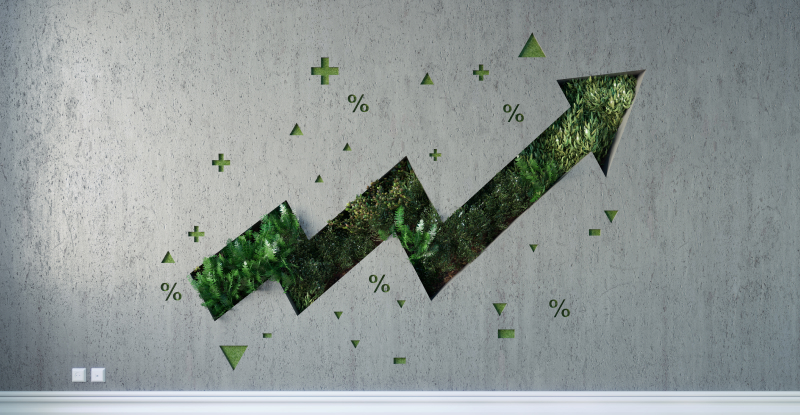
Recently, we’ve seen significant disruption in many areas of business and society – find out what this means for the future of ESG in this podcast episode. Part of our Coffee Chats with CPABC podcast series.
At home and abroad we’re seeing progress, but also very significant disruption, in many areas of business and society – including ESG. To take a closer look at recent developments and to explore what they mean for the future of ESG, I chatted with Katie Dunphy, partner and national ESG reporting transformation leader at KPMG in Canada. Highlights from our conversation follow.
Lori: We’ve seen real progress on ESG in Canada with the CSSB recently releasing our country’s first sustainability disclosure standards, CSDS 1 and 2. What reaction are you seeing from industry?
Katie: The release of the standards was a significant milestone, charting a course for more consistent, complete, and comparable sustainability-related financial disclosures in Canada, and while there’s strong support from the investment community, there’s a clear impact on preparers. Industry response has been remarkable. There was extensive participation during consultation on the draft standards; now, with CSDS 1 and 2 launched, industry is asking questions about how to use these voluntary standards until they are mandated.
Businesses are navigating competing priorities, regulatory uncertainty, and geopolitical volatility. They are rightly asking, ‘What takes priority right now?’ Despite this, I’m optimistic that industry will broadly support the transition to standards adoption. I think their focus is logically going to be finding those ‘no regrets’ initiatives that they can pursue today and make progress on in the near term, which will help them prepare for the continuous increase in regulation on disclosures in years to come.
Lori: Is there anything unique or surprising that you’d like to highlight about CSDS 1 and CSDS 2?
Katie: The consideration of Indigenous rights in the CSSB’s work and the integrating of Indigenous perspectives into the standard-setting process is an important precedent. There’s an excellent summary available of perspectives on Indigenous matters and that was collected through the consultation process.
More generally, the final standards reflect the consultation process and the needs of Canadian businesses, improving comparability of sustainability-related financial information, and enhancing investor trust. With more comprehensive reporting, we’ll see increased focus on the topics that matter the most – a sort of forced reconciliation of balancing broad business demands and a changing complex macroeconomic environment with the practicality of needing to make progress on sustainability.
Interoperability between standards is also crucial. A great example is the recent announcement from the Office of the Superintendent of Financial Institutions stating they’re going to further align their Guideline B-15 on climate risk management with the final CSSB disclosure standard. This helps create certainty that these standards will be the reference point for sustainability disclosures going forward.
Lori: If there is a change in federal leadership this year, how might that impact adoption of these standards?
Katie: Of course, changes in policy priorities can affect momentum. However, in all future federal leadership scenarios, Canadian companies will need to determine how they’re going to adopt these new standards. Irrespective of what we see on the policy front, there is a clear expectation from investors who have been requesting, and are now anticipating, the reporting of more credible and comparable sustainability information.
Businesses recognize that they need to continue making investments in and progress on sustainability. As well, they are still going to have to deal with international regulations and proposals. For example, California’s Climate Corporate Data Accountability Act and New York’s Climate Act will continue to impact Canadian companies and their related value chains. Given global rules such as these which are unaffected by changes in Canadian leadership, businesses have to keep moving in the same direction.
Lori: BC’s economy is largely made up of small and medium enterprises. What aspects of CSDS should private companies in BC focus on?
Katie: SMEs can benefit from adopting the standards, as they will face information requests from capital providers and B2B customers. SMEs can focus on considering the proportionality measures, for example, the reliefs that have been made available through the final standards. There are also resources and guidance emerging on existing protocols that organizations are using for underlying quantification and developing robust methodologies, using things like the requirement to use reasonable and supportive information. There are considerations baked into the standards that were included to ensure that the standards can apply to all types of companies, including SMEs. They will also need to develop internal skills to ensure effective adoption of sustainability reporting; to that end, they should consider training programs and partnerships with experts to build capacity and understand the frameworks and standards.
Lori: Globally, we’re seeing anti-ESG rhetoric from the Trump administration and the EU’s omnibus package to simplify their sustainability reporting regime. How will global developments like these impact ESG initiatives?
Katie: The current political climate introduces many challenges, especially for ESG, which is caught in a cultural and philosophical divide. However, these shifts are somewhat characteristic of political cycles. ESG initiatives need to be able to withstand these challenges, and the rationalization that’s necessary in right-sizing these policy developments. Like any initiative, we’re probably very ambitious in creating these standards and simplification can be a good thing.
We also need to take a measure of pragmatism when we’re moving towards implementing new reporting standards. We need to achieve the right balance of reporting with strategy and risk management. When any one of those topics dominates, it can be distracting for management teams who need to realistically do all three in a balanced way. This effort to rationalize and simplify some of these standards is probably a good thing; I think it’s going to help us focus on what matters the most.
Lori: We’ve seen related moves, including by major banks that have pulled out of the Net Zero Banking Alliance, plus the suspension of the Net Zero Asset Managers Initiative. What might be the consequences of these actions?
Katie: Again, there’s a bit of a right-sizing going on. Despite banks and other financial institutions stepping away from these large organizations and initiatives, they are still largely pursuing their climate goals. They have stated that they’re developing tailored strategies to address their climate risks and opportunities; they’re going to continue to align and enhance their unique operational context so that they can deliver on those commitments and make better on their performance. That approach allows them to continue to contribute to global sustainability and through their individualized plans. The direction of travel is what remains important.
Lori: Looking ahead five to ten years, will ESG still be relevant?
Katie: More than ever. The conversation on these topics is just beginning and will continue to grow. For now, we’re determining which information markets require to incentivize and promote change. We’re getting consensus and support from businesses to get that information into markets. We’re going to see continued rationalization of reporting standards and an increasing focus on strategic implementation and risk management. The overall context of climate change doesn’t go away – we see its continued acceleration and impacts on society and the economy. This will keep businesses focused on what matters and ensuring that their ESG and sustainability efforts, many of which are long-term commitments, don’t go to waste.
Lori: The ISSB announced biodiversity and human capital management as the next priorities for standards development. How might these topics translate in the Canadian context?
Katie: We’re going to see continued alignment with new frameworks, for example, the Taskforce on Nature-Related Financial Disclosures. For CPAs and Canadian businesses, getting familiar with that is an important first step in thinking about a structured approach to a model where there’s ongoing standards change. We’re going to see layering – more requirements being built on top of the initial climate standards – so it’s important to take the lessons learned from these first climate-related standards and apply them to future potential standards.
Lori: What should CPAs be watching out for in the year ahead?
Katie: This opportunity to take things down to important first principles and important first steps will probably be the focus for many organizations, as they’re dealing with such a volatile and dynamic operating environment. We’re going to start to see organizations align with sustainability standards, CSDS 1 and 2 included, and enhance their reporting. As always, CPAs will provide a critical role in helping companies navigate the challenges of adopting new standards. Additionally, we will see strong benefits across the market as we get a more comprehensive picture of sustainability performance, in addition to our traditional financial performance measures.
For more insight, check out CPABC’s collection of ESG articles and podcasts.
Lori Mathison, FCPA, FCGA, LLB, is the president and CEO of CPABC.



